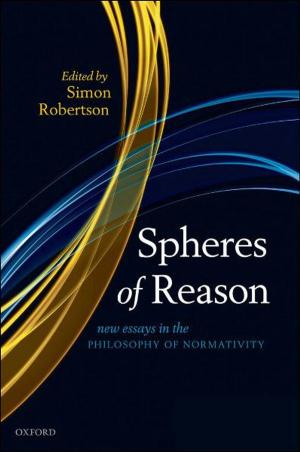The Oxford Handbook of the Sources of International Law
Nonfiction, Reference & Language, Law, Jurisprudence, International| Author: | ISBN: | 9780191062551 | |
| Publisher: | OUP Oxford | Publication: | October 19, 2017 |
| Imprint: | OUP Oxford | Language: | English |
| Author: | |
| ISBN: | 9780191062551 |
| Publisher: | OUP Oxford |
| Publication: | October 19, 2017 |
| Imprint: | OUP Oxford |
| Language: | English |
The question of the sources of international law inevitably raises some well-known scholarly controversies: where do the rules of international law come from? And more precisely: through which processes are they made, how are they ascertained, and where does the international legal order begin and end? This is the static question of the pedigree of international legal rules and the boundaries of the international legal order. Second, what are the processes through which these rules are made? This is the dynamic question of the making of these rules and of the exercise of public authority in international law. The Oxford Handbook of the Sources of International Law is the very first comprehensive work of its kind devoted to the question of the sources of international law. It provides an accessible and systematic overview of the key issues and debates around the sources of international law. It also offers an authoritative theoretical guide for anyone studying or working within but also outside international law wishing to understand one of its most foundational questions. This Handbook features original essays by leading international law scholars and theorists from a range of traditions, nationalities and perspectives, reflecting the richness and diversity of scholarship in this area.
The question of the sources of international law inevitably raises some well-known scholarly controversies: where do the rules of international law come from? And more precisely: through which processes are they made, how are they ascertained, and where does the international legal order begin and end? This is the static question of the pedigree of international legal rules and the boundaries of the international legal order. Second, what are the processes through which these rules are made? This is the dynamic question of the making of these rules and of the exercise of public authority in international law. The Oxford Handbook of the Sources of International Law is the very first comprehensive work of its kind devoted to the question of the sources of international law. It provides an accessible and systematic overview of the key issues and debates around the sources of international law. It also offers an authoritative theoretical guide for anyone studying or working within but also outside international law wishing to understand one of its most foundational questions. This Handbook features original essays by leading international law scholars and theorists from a range of traditions, nationalities and perspectives, reflecting the richness and diversity of scholarship in this area.















